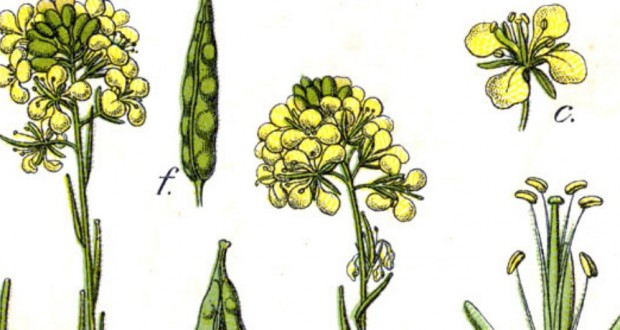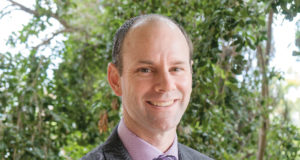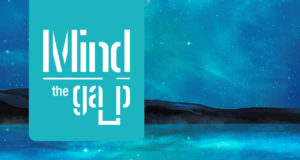In the wake of 2013’s year of discipleship, the Queensland Synod continues to invest in the spiritual life of the church by designating 2014 the year of growing faith. Rohan Salmond explores what it means to have faith and how faith can grow in the face of adversity.
“My faith really is a Paul on the road to Damascus-type experience,” says Dr Iain Johnston, an intensive care specialist living on the Gold Coast. “In 2005 I had a fairly abrupt and amazing experience of coming back to God.”
Now attending Newlife Uniting Church Robina, Iain is devoted to developing his relationship with God and helping other people do the same.
“I started to lead a small group probably around two years ago now,” he says. “We come from very disparate backgrounds … yet watching us grow together, praying for one another, helping one another is a beautiful thing.”
Gotta have faith
Faith, as described by the Westminster Confession of Faith (itself affirmed by the Uniting Church Basis of Union), is a gift of God. Rev David Baker, Bremer Brisbane Presbytery Minister and Queensland Synod Moderator-elect, says developing and growing this gift is a part of the Queensland Synod’s Together on the way, enriching community journey.
“[It’s about] growing in the faith that is the gift of God to us in Christ. My sense is that growing faith is a word to the church about how it lives its life and understands itself—and how it orders its life, particularly for Christian communities,” he says.
Rev Dr Wendi Sargent, Director of Studies of Apologetics and Evangelism at Trinity Theological College in Brisbane, says having faith in God is about learning about God and forming a relationship.
“It’s finding out more about God so that we can enjoy God and enjoy our faith. It’s not merely about proving that God exists, but to get to know God like you get to know a friend. It’s something you want to do and are excited by—it’s fun!” Wendi laughs.
In order to really nourish his faith, Iain delved into the Bible.
“I think unless you know who God is through reading the word and being familiar with it, you can’t really nurture that relationship.
“It’s very tempting to read outside of the Bible and there’s a lot of very, very good literature expanding on the Bible. That’s all well and good, but there’s no substitute for going back to the primary text,” he says.
Iain adds that having faith includes having faith in doctrine, as well as in God.
“I think you can equate the thing we call faith with a world view,” he says. “Our faith is our faith in the building blocks [the ideas that influence how we see the world]. If you don’t get the building blocks right, you can end up believing some extraordinary things.”
Nourishing challenges
In an increasingly pluralistic society, Christian faith is not the only world view in the market of ideas. Even within the church, differing world views are common, and tensions can arise when we encounter ideas that challenge the received understanding of our faith.
David sees new ideas as an opportunity. “We need to be able to honestly dialogue with other world views and see them and understand them for what they are and appreciate them,” he says. “But we will only do that really fully as we understand the depth and the quality of what’s being handed to us in the Christian tradition.
“Hopefully any engagement we have will call us into some questions and a deeper engagement with our own tradition.”
Wendi agrees. “When we have things that challenge our faith, it’s a real opportunity to develop our faith more and to say, ‘Well God, what do you think about this?’
“Let’s have a look at the Bible, let’s have a look at what people have said in the past and how have they dealt with this? And also—speaking as a practical theologian—how does science deal with this? How do psychology and social sciences like history see this? All those kinds of things can be drawn together and discussed with scripture and reason and tradition.
“As you go on with your faith I think it broadens out, I don’t think it narrows in—because you’re seeing more of God, and God is more than we think,” she says.
Stretching faith
When unexpected and sometimes calamitous events happen in our lives it can lead us to question whether God has let us down, but these can also be times faith grows, says Iain.
“I think another crucial aspect you don’t hear talked about in the church that much is how we react to adversity and what happens to your faith in difficult times,” he says.
“The Bible talks about purification through trials, and that’s when our faith is really put to the test. It brings us closer to God because it’s at times like that we really get down on our knees and seek his face when we might neglect him otherwise. That’s a key aspect of growth: adversity.”
But whether it’s a challenging world view or a challenging life event, growth happens best when surrounded by people who can help, says Wendi.
“Faith is struggling with stuff and engaging with other people. It’s finding out their stories and seeing what they’ve done in different situations. It’s hearing what they think about different things.
“That’s people around now and people from our history too.”
“It’s very simple,” says David, “[Growing faith] means loving your neighbour as you love yourself. It means standing in empathy and solidarity with those around you and the issues and challenges that they face.
“Proverbs 27:17 says, ‘As iron sharpens iron, so one person sharpens another.’ How are we encouraging one another to be the best disciple we can be?”
Beyond comfort zones
A few years after his conversion experience, Iain volunteered for two years as a doctor in West Africa.
“I did some work with Mercy Ships, and as the usual thing with missions, you go over there to change the world and you end up coming back having changed yourself.
“I think if you step out of your comfort zone—and I was definitely out of my comfort zone in West Africa!—that’s where God’s really able to partner with you.
“I think the real danger living in Australia is you tend to think you’re independent and immune from needing God’s help. That’s a dangerous place to be! I think you need to stretch yourself a little bit,” he says.
A little goes a long way
The year of growing faith is an important part of the Queensland Synod’s journey, but Iain is keen to remind us that, like a muscle, faith grows when it is used.
“When you hear Jesus refer to faith, he says you don’t actually have to have very much, but you’ve got to use it. You might only have a little faith, but the important part is putting it into practice,” he says.
Wendi is ready for the growing faith adventure.
“It’s never smooth,” she says, “It’s fraught with all sorts of exciting things.”
 JourneyOnline
JourneyOnline






